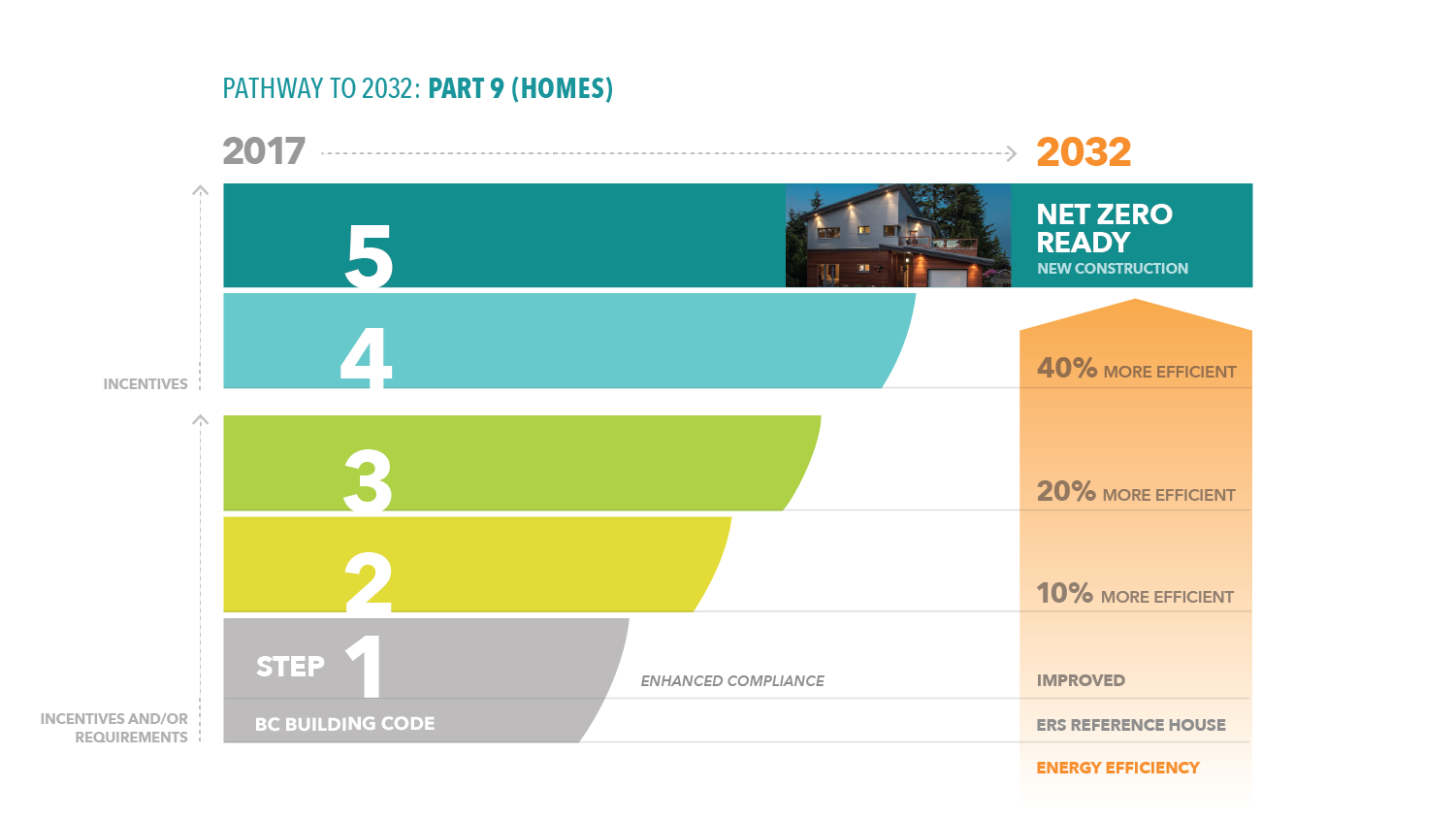BC ENERGY STEP CODE
A High-Performance Staircase
The Energy Step Code is a voluntary provincial standard enacted in April 2017 that provides an incremental and consistent approach to achieving more energy-efficient buildings that go beyond the requirements of the base BC Building Code. It does so by establishing a series of measurable, performance-based energy-efficiency requirements for construction that builders can choose to build to, and communities may voluntarily choose to adopt in bylaws and policies.
The Step Code takes a new, performance-based approach rather than the traditional prescriptive approach. The BC Energy Step Code does not specify how to construct a building, but identifies an energy-efficiency target that must be met and lets the designer/builder decide how to meet it.
To comply with the Step Code, builders must use energy modelling software and on-site testing to demonstrate that both their design and the constructed building meet the requirements of the Step Code. The new standard empowers builders to pursue innovative, creative, cost-effective solutions, and allows them to incorporate leading-edge technologies as they come available.

The Step Code also supports consumer choice, by allowing designers and builders to use natural gas, electricity, or other energy sources for their project without imposing a penalty on this decision. This fuel-neutral approach provides builders with the flexibility to make energy-efficient buildings using all available technologies.
